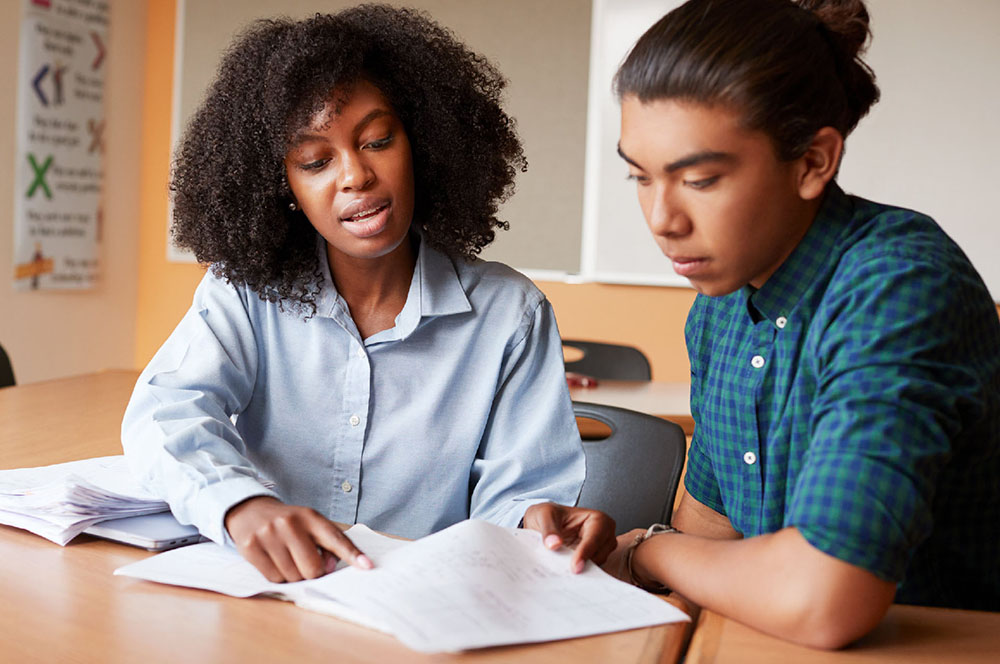How to deal with your friend that has dyslexia (10 Supportive Ways)

How to deal with your friend that has dyslexia: Many of the individuals we know and love are impacted by the learning disorder dyslexia. Learning to read and comprehend words, letters, and other symbols are challenges associated with the disease. EnoughInfo.com
Read Also: How To Explain Anxiety To Someone (SAY IT & SHOW IT) Tips

For those that have it, dyslexia may be extremely aggravating and complex, even if it has no effect on overall ability. The neurological condition is unfortunately incurable, but you may still be a rock of support for your buddy who is struggling. The finest methods to help a buddy who has dyslexia are listed below.
How to deal with your friend that has dyslexia with10 Supportive Ways
Supporting your friend effectively involves recognizing their unique challenges and helping them navigate academic, social, and personal situations. Here’s a more in-depth explanation of ten supportive ways to assist a friend with dyslexia:
Read Also: How To Live Up To Your Full Potential
1. The Most important thing is Learning about it
If you want to be a true friend to your buddy, invest some time in learning about dyslexia. Recognise the symptoms of dyslexia, how it affects learning, and the several techniques and resources available to assist those who suffer from it in overcoming obstacles.
2. Place Yourself in Their Situation
This right here is part of learning about it. Before you try to aid the issue or provide advise, consider how you would feel if you were presented with the same set of obstacles. You’ll become the most understanding version of yourself with the aid of this easy practise. Imagine if you had your friend’s identical obstacles while you went about your everyday activities. Consider how you would like to be helped and treated well by others, and then extend the same generosity to others.
3. Promote Honest Communication
Establish a space where your buddy feels at ease talking about their struggles and experiences. Being open with them gives you a better understanding of their needs and gives them a chance to voice any worries or frustrations they may be having.
Read Also: How to make friends in your 20s
4. Highlight Strengths
Unique abilities like creativity, problem-solving, and original thought are frequently linked to dyslexia. To assist your buddy see their worth beyond academic obstacles and to improve their self-esteem, support and praise these strengths.
5. Provide Patient Support
Activities such as reading, writing, and spelling might take longer when a person has dyslexia. When your buddy takes longer to finish projects or has trouble with a certain term, show them your patience and understanding. Your patience and encouragement might help them feel less stressed and more confident.

6. Explore assistive technology
Those with dyslexia can benefit greatly from assistive technologies. Introduce your acquaintance to voice recognition software, audiobooks, and text-to-speech applications. Their educational experience can be improved by assisting students in using and integrating these technologies into their daily lives.
Read Also: How to Help Someone Having a Panic Attack (2023 Guide)
7. Encourage Self-Speaking
Urge your acquaintance to speak up for themselves in social and academic contexts. Talking about their requirements with educators, employers, and other relevant parties who can provide the required adjustments is part of this. Gaining self-advocacy abilities enables people to actively manage their dyslexia.
8. Promote Inclusivity
Get your friend involved in both academic and social activities. Make sure they feel appreciated and involved and refrain from assuming anything about their ability. Their general feeling of belonging and social well-being might be positively impacted by inclusive settings.
9. Provide Useful Assistance, Go Practical
Provide useful support, such editing their writing, organising their belongings, or offering helpful study techniques. A spirit of collaboration may be reinforced and their academic path made easier with practical help.
Read Also: How To Be A Supportive Partner(The Ultimate Guide)

10. Always Celebrate Success
Regardless of the size of your friend’s accomplishment, acknowledge and celebrate them. Positive reinforcement encourages individuals to persevere in the face of difficulties and gives them more self-assurance. Your assistance may play a major role in their success—both personally and academically.
Conclusion
Recall that constant communication and flexibility are essential for providing successful support. Adjust your support to your friend’s individual requirements, and follow up often to make sure your friendship is still valuable to them. Developing a supportive connection with a person who has dyslexia requires first laying a solid foundation of comprehension and empathy.
FAQs & Answers
1. Is it difficult ot live with someone that is dyslexic?
Although cohabiting with a dyslexic person might have certain issues, each person’s experience is different. Dyslexia by itself does not make a person difficult to live with; rather, it’s the possible difficulties brought on by the condition that may need for accommodation and understanding.
2. Why is diversity so important?
A8: Inclusive surroundings guarantee a sense of value and acceptance for people with dyslexia. Including your buddy actively in social events and school initiatives gives them a feeling of community and enhances their general wellbeing.
3. How can someone who is dyslexic study most effectively?
Give students many avenues for making connections and understanding topics by incorporating multisensory input and activities. Use real items, puppets, tale films, and flash cards in the classroom, for instance. The use of many senses simultaneously stimulates the brain in different ways for learners.




